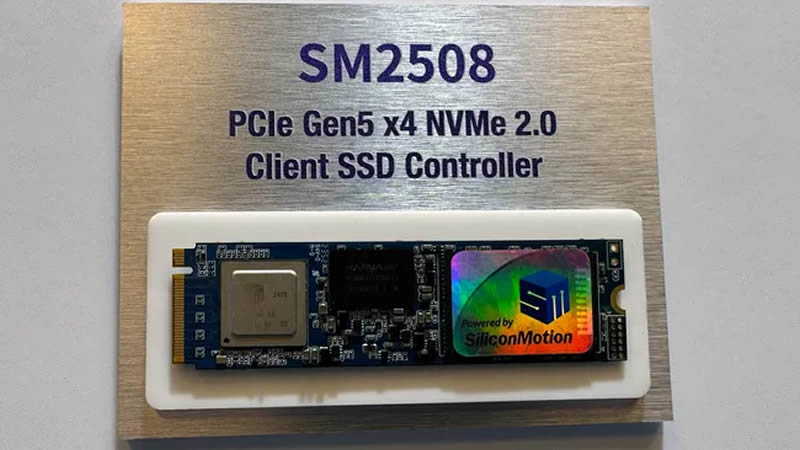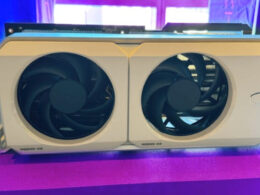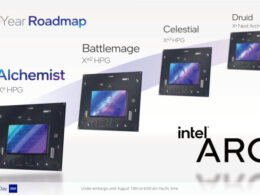Silicon Motion Confirms Release of SM2508 Solid State Drive (SSD) Controllers for The Fourth Quarter of 2024
Silicon Motion, a leader in SSD controllers production, has officially stated plans to release its SM2508 platform for client-based SSDs that incorporate a PCIe 5.0 interface, aiming at the fourth quarter of 2024. The company also unveiled some additional details about SM2508 and its anticipated performance.
Key Features and Capabilities
Equipped with four Arm Cortex-R8 cores and eight NAND memory channels – each supporting ONFI/Toggle DDR at up to 3600 Mbps – the SM2508 controller is designed to reach sequential read and write speeds of up to 14.5 GBps, as well as random read and write IOPS (input/output operations per second) of up to 2.5 million when connected via a PCIe 5.0 x4. This information was divulged by Tom’s Hardware.
Silicon Motion claims that the SM2508 controller will offer significantly higher performance compared with competing systems, such as the Phison’s PS5026-E26 chip.
Energy Efficiency and Reduced Power Usage
Another key advantage of the SM2508 is its low power consumption, courtesy of its production using TSMC’s 6-nm manufacturing process. With a peak power usage of just 3.5 W, the controller is expected to consume around 7 W under load, a rating noticeably lower than the competition. This feature allows SSDs based on this controller to operate optimally without heat sinks, making them suitable for laptops and related devices.
Testing and Development Progress
Silicon Motion is currently working with partners to optimize firmware and test the SM2508 controller with various types of 3D NAND memory, including TLC and QLC. SSDs based on the SM2508 controller will likely utilize 1 Tbit 3D TLC NAND chips and above with a 2400Mbps interface to ensure full PCIe 5.0 x4 bandwidth
Anticipated Industry Impact
By the end of 2024, there could be a new wave of high-performance, low-power client SSDs based on the SM2508 controller from Silicon Motion. These are designed to fully utilize the potential of the PCIe 5.0 interface, positioning the company at the forefront of SSD innovation.





